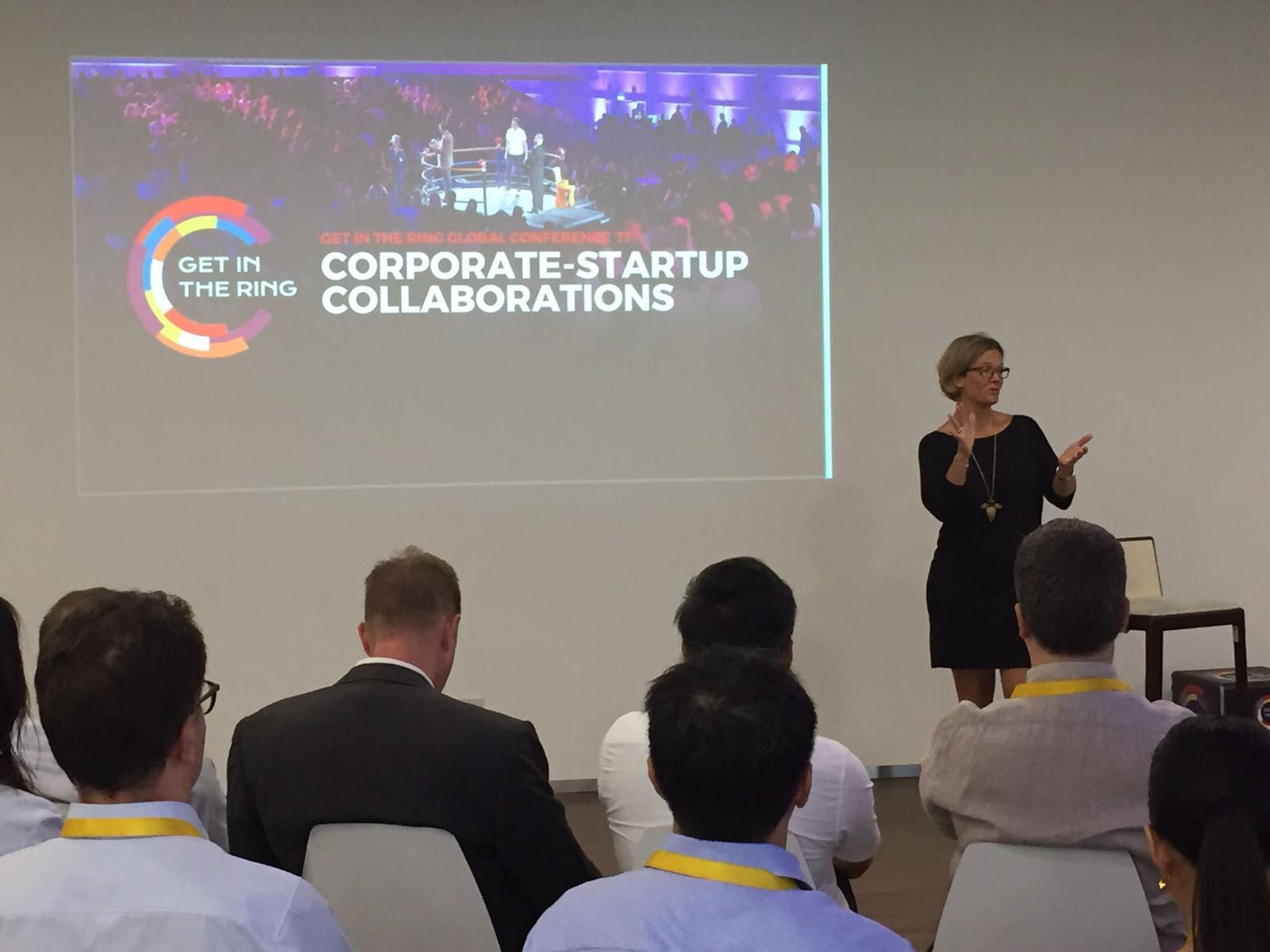Subscribe to the newsletter:
Mutual understanding remains key for now
Although startups and corporates are working together more and more, it’s still a battlefield. Accusations are made over and over, and, although increasing, still only few are actually succeeding in working together. Without having the illusion to solve this, what could be done to place one step into the right direction?
During the Get in the Ring Global Conference in Singapore we organized a training track focussed on corporates and startups with the goal to exchange knowledge and experiences on working together. Viewing the biggest challenges from both perspectives. We focused on answering questions like; how to arrange the internal process for pilot projects? How to cope with risk-averse, traditional business units? How to deal with IP and the risk of ideas being copied? And, a nice one; to what extent should a startup proposition be adapted to the needs of an individual corporate?
During the session we asked participants for each topic to think about what it would take to evolve one step forward. One idea that could improve the way we are collaborating now. Which is easier said than done. Among participants were startups from different countries, and representatives of corporates like Philips, Kelloggs, Microsoft, Maersk, and more.

So which steps can be taken? We have selected three interesting ideas out of many:
SHARING IS CARING – there is a lot to learn from each other, and we are not yet collectively putting in enough effort to share all this knowledge and educate each other. There is a reason why startups and corporates are operating from two different worlds. One positive development is that more corporates now have ex-startup folks working in their innovation departments and more ex-corporate folks begin startups. Even so, it’s important from both sides to continually check assumptions on how we think the other world works. One of the next steps for a corporate could be a dedicated learning center for external startups, based on a selection, to learn more in-depth about the innovation needs and ways of working of a specific corporate. This could be focused on different subgroups, so for example a pre-startup, startup and scale-up academy.
CLEAR RESPONSIBILITIES – it happens too often that the follow-up on a potential collaboration, before things are formalized, is one-sided. It’s not always clear who is responsible for what. In the case of the startup it’s usually pretty clear where the responsibility lies in the organization for delays or even killed projects. In the case of the corporate this can be very unclear. It would be a step forward if someone within the corporate becomes formally responsible for such projects. These people exist for bigger partnerships, or open innovation in general, but usually not yet for startup collaborations.
FIND OUT FIRST ABOUT OUR ANNOUNCEMENTS AND EVENTS

ACCEPTANCE – even though startup corporate collaboration is now a ‘thing’, it has existed since… forever. However, it was never a big enough topic to be formally part of processes or to get its own departments, managers or processes. The fact that both in general are now learning how to deal with this and changing the way they approach this topic, means mistakes are going to be made. People are learning and that is ok. We need to accept this, as we will not change our ways overnight. Being frustrated about things not going fast enough, is not constructive in any way. One of the challenges we now have is that we want to collaborate on a massive scale in all industries, but at the same time there are not yet enough people with relevant experience in this same field to share best practices and avoid trial and error. The good thing is, if we can accept this for now, the problem will solve itself over time. The best we can do now is not stop trying, build as much experience as possible, involve more people and accept failure as part of the process to get really good at this.
On a final note, the ideas to use technology to improve corporate-startup collaboration were hard to find. You would expect at least self-learning AI solutions and some Tinder-like idea. Maybe because this is still such a newly developing topic, we first need to understand what works and what doesn’t, and technology will follow sooner than later.